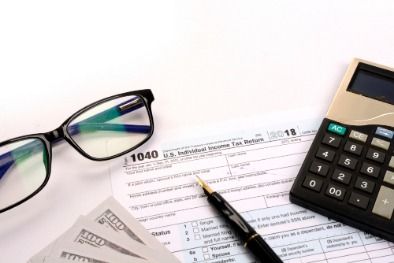
IRS Looking For Your Offshore Bank Accounts
The more money you have, the more likely you are to cheat on your taxes. The rich have more opportunities to try to hide assets and income from the Internal Revenue Service, particularly through offshore bank accounts. In the United States, banks are required to report income earned by their customers on savings and investments. Many taxpayers are familiar with the 1099-INT and 1099-DIV forms for interest earned and dividends respectively. The I.R.S. can somewhat easily match the 1099 forms provided by banks with the 1040 income tax return forms filed by taxpayers to find discrepancies.
Banks located outside the United States, depending on their local laws, may not be required to provide this information fully to the United States government. Thus, the I.R.S. might not know if a taxpayer is earning money in an offshore account, making it easy to “forget” to include that income when filing taxes. Of course, this is fraud, and a bad idea.
The government is getting better at convincing banks located in tax havens to comply with I.R.S. requests for information about customers who happen to be taxpaying citizens of the United States. UBS, the largest bank in Switzerland, has ended its offshore “secret” banking service in Switzerland as a result of a settlement of a federal investigation. And this year, the I.R.S. is requiring certain taxpayers to file a new tax form, Form 8938, disclosing offshore assets and income.
Here are the certain taxpayers who must file this form:
- Unmarried taxpayers or married taxpayers filing separately living in the United States whose total offshore assets at the end of the year total at least $50,000 or whose offshore assets exceeded $75,000 any time during the year. Married taxpayers filing jointly living in the United States have thresholds that are double the amounts for unmarried taxpayers.
- Taxpayers living abroad whose total offshore assets at the end of the year total at least $200,000 or whose offshore assets exceeded $300,000 any time during the year.
Taxpayers who are otherwise not required to file an income tax return are not required to complete this form, either. The guidelines for determining who must file Form 8938 and which assets to report can be a bit complicated, so it’s best to read the rules from the I.R.S. and speak to an accountant familiar with the new law for advice.
The penalties for incorrect information of Form 8938 are steep, and even small errors can result in significant fines. Failure to file the form when required to do so can result in a penalty of $10,000, and if you continue to ignore requests from the I.R.S. to file, the penalty can reach $50,000. Even if you live offshore and your country has a law preventing you from disclosing your financial information to the United States, you can’t avoid the reporting requirement and penalties. If you file the form but underpay your taxes even due to an error on Form 8938, you will be charged a penalty of 40 percent of your underpayment.
If the government can show you committed fraud in underpaying your tax, the penalty will increase from 40 percent to 75 percent of your underpayment. Those penalties are additional to paying what you do owe, according to the I.R.S., plus interest.
The I.R.S. is also threatening criminal penalties for taxpayers who fail to file Form 8938, fail to disclose all offshore assets, or underpay their taxes.
If you look at Form 8938, you will see that reporting requirements for offshore assets and income are different than requirements related domestic bank accounts and investments. In general, you only need to report income from domestic bank accounts and investments, but with offshore accounts, the I.R.S. wants to know the value of your assets, not just your income.
As David Jolly points out in The New York Times, the information you report to the I.R.S. on Form 8938 duplicates a separate reporting requirement. Taxpayers who have more than $10,000 in offshore bank accounts must already file a Report of Foreign Bank and Financial Accounts (FBAR). The FBAR is used by the United States Treasury to identify money laundering and terrorism funding, so the I.R.S. is already receiving some of the information it needs. Form 8938 ties this information to taxpayers’ income tax returns. If the government decides to use the information filed on the FBAR to cross-check the information included on Form 8938, it could potentially identify more income tax evaders.


Article comments
What about Americans who just live and work in foreign countries?
“Taxpayers living abroad whose total offshore assets at the end of the year total at least $200,000 or whose offshore assets exceeded $300,000 any time during the year.” must file the correct form to go with their taxes.
Interesting. What about people who have nothing to hid and just live and work in a foreign country?
Swiss banks and other offshore banks have been complicit accomplices to tax evasion for decades. Its about time they held the tax cheats accountable. The government already offered amnesty to the cheaters. If they didn’t come forward then I have no sympathy.
Do keep in mind just because someone has an offshore account does NOT mean tax evasion. There are legit reasons to have offshore accounts, especially if you are wealthy.
This could be good/bad news for Govenor Roomney!
It seems only fair that this income be taxed. There was a sketch on “The Daily Show” last night about what the rich will do if the Buffett Rule ever gets passed by Congress. Offshore accounts were mentioned as one strategy. I guess that may not be feasible anymore.